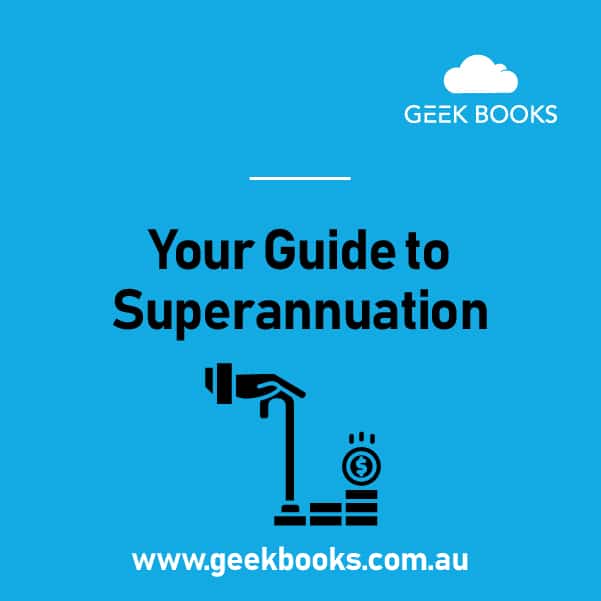Welcome to your Australian superannuation guide! No doubt you’re here because you’re thinking about your future, and that’s smart.
As of June 2023, Australians had a staggering $3.5 trillion invested in superannuation assets!
That huge amount of money represents the financial futures of millions of Australians, including you.
Understanding superannuation is crucial whether you’re just starting your career or are well into it.
If you’re starting out, it’s about establishing a solid foundation for your retirement savings.
Early contributions, even small ones, can significantly grow over time.
If you’ve already been in the working world for a while, it’s about maximising your super fund’s potential to boost your retirement nest egg.
Whatever boat you’re in, staying informed and actively managing your superannuation will keep it working effectively for your financial future.
In this superannuation guide, we’ll discuss how super works, plus the latest tips and tricks to make the most out of it before you retire.

What Is Superannuation?
Australian superannuation is a long-term savings arrangement designed to provide an income to live on when you’re older and no longer working.
The money comes from contributions made into your super fund by your employer and, potentially, by you.
You can make optional personal contributions to your superannuation fund from your income.
These come in two forms: concessional (before-tax) contributions, like salary sacrificing, and non-concessional (after-tax) contributions.
Such contributions can substantially increase your retirement savings and offer possible tax benefits.
Super funds are managed by professionals and are invested in various assets, including
- Stocks (shares in companies)
- Bonds (loans to governments or companies)
- Property
- Cash
- Infrastructure
- International assets
The mix of these investments depends on the fund’s strategy and your chosen investment option, balancing growth potential with risk.
The aim is to grow your retirement savings over time.

Is Having a Super Fund Mandatory?
Australian superannuation is required for most employees, regardless of their earnings.
Those eligible for super include
- Full-time, part-time, and casual employees.
- Employees 18 or over, regardless of how many hours they work.
- Employees under 18 who work more than 30 hours per week.
- Contractors paid mainly for their labour.
- Workers receiving a super pension or annuity, including those transitioning into retirement.
- Temporary residents, such as backpackers.
- Individuals in directorial roles in companies.
- Family members employed in your business.
There are some people who do not qualify for super, such as
- Non-resident employees working outside Australia.
- Domestic workers in private residences under specific conditions.
- Some high-income earners with individual arrangements.
Additionally, if you’re self-employed as a sole trader or in a partnership, you are not obligated to contribute to a super fund for yourself.
However, you are encouraged to do so to ensure you have savings for your retirement.
Contributing to a super can also provide tax benefits, helping to reduce your taxable income.
How Is Super Calculated?
Your super is calculated as a percentage of your ordinary time earnings (OTE).
OTE typically includes what you earn for your ordinary work hours, including over-award payments, bonuses, commissions, shift loading, and allowances, but not overtime payments.
The super guarantee rate, currently at 11%, is the minimum percentage of your OTE that employers must contribute to your super fund.

How Do I Save Money in My Super?
To save money in your super fund, consider these strategies.
- Employer contributions: This one is a non-negotiable, no-brainer! Employers must contribute at least 11% of your ordinary earnings to your super. From 1st July 2024 this rate increases to 11.5%.
- Voluntary contributions: You can make additional contributions to your super before-tax (concessional) or after-tax (non-concessional). Before-tax contributions can reduce your taxable income.
- Government co-contributions: If you’re a low or middle-income earner and make after-tax contributions, you may be eligible for government co-contributions.
- Investment choices: Your super fund’s performance, and hence your returns, are determined by its investments in assets like shares, property, or bonds. Choosing between high-risk options for possibly higher returns or low-risk for more stability can impact the growth of your retirement savings.
- Fees: Compare different fund fees, as lower fees can obviously lead to more savings in the long run.
- Consolidate super accounts: Having multiple super accounts means paying multiple fees, so it’s a good idea to consolidate your super into one account.
- Spousal contributions: Contributing to your spouse’s super can not only help their retirement savings but also provide you with tax benefits.
- Salary sacrifice: You can arrange with your employer to sacrifice a part of your pre-tax salary into your super. Doing this is tax-effective because it reduces your taxable income, and the money contributed is taxed at a lower rate in the super fund. This can lead to more savings in your super over time.
How Do I Choose the Best Super Fund?
Choosing the best super fund involves considering investment options, fees, performance, insurance, and services offered.
Compare different funds’ past performance to gain insight into their management and investment strategies.
While not a guarantee of future performance, it will help you assess their expertise in navigating market changes and economic cycles.
Also, compare fees, as lower fees can mean more eventual savings.
Then, consider the range of investment options available and whether they align with your risk appetite and retirement goals.
Finally, review the insurance coverage and other services offered, such as financial advice.
It’s essential to choose a fund that suits your individual needs and retirement objectives.

How To Make the Most out of Your Superannuation
To maximise your superannuation, take the strategies from this superannuation guide and implement them in the following ways.
- Regularly review investment options to check they align with your risk tolerance and retirement goals.
- Consolidate super accounts to reduce fees and simplify management.
- Make voluntary contributions to take advantage of tax benefits and government co-contributions.
- Salary sacrifice to reduce your taxable income while boosting your super balance.
- Stay informed of changes in superannuation laws and regulations.

Supercharge Your Superannuation Strategy With GeekBooks Superannuation Services
If you’re an employer looking to streamline your superannuation responsibilities, you need our specialised superannuation services.
Our expertise in superannuation accounting will help your business stay compliant, manage super payments efficiently, and provide strategic advice to optimise benefits for both your company and employees.
Protect yourself, your business, and your employees with our proven processes for calculating and paying superannuation.
We stay up to date with the latest legal requirements and compliance factors so you’ll avoid costly penalties and unexpected audits.
We’ll help you handle your superannuation obligations effectively to save time and stress.
For the best superannuation advice in Australia, contact us today by completing this online form.


